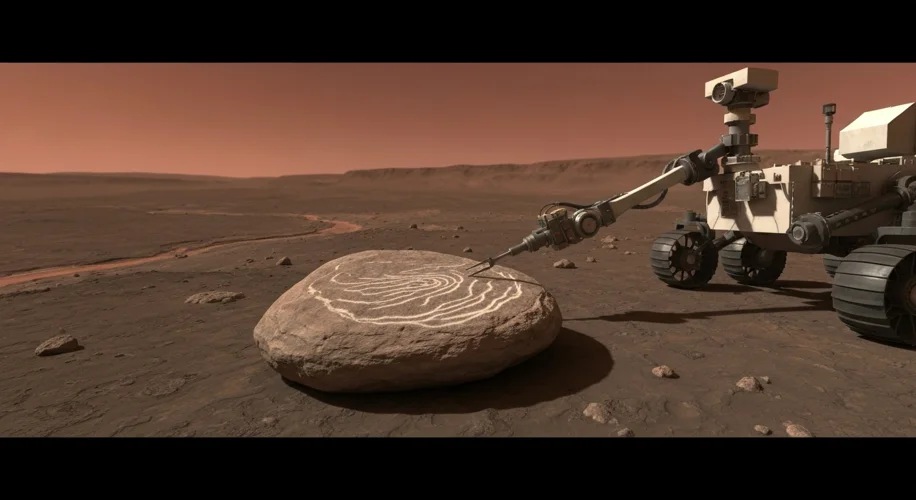Mars Rover Uncovers Potential Signs of Ancient Life
Today, September 11, 2025, marks a significant moment in our exploration of the cosmos. NASA announced that its Perseverance rover has found what could be the clearest sign yet of potential past life on Mars. This discovery, detailed in research published in Nature, centers around a specific rock found in Jezero Crater.
What’s So Special About This Rock?
This particular Martian rock is showing associations between minerals and organic compounds that scientists believe could indicate past biological activity. Think of it like finding fossilized footprints or fossilized microbes here on Earth. The way these minerals and organic molecules are structured together within the rock suggests that life might have played a role in their formation.
It’s important to remember that this is not definitive proof of life, but rather a strong indicator. NASA scientists are emphasizing that there could be non-biological explanations for these findings. However, the specific types of organic molecules and their arrangement are highly suggestive of what we might expect from ancient microbial life.
Jezero Crater: A Promising Location
Jezero Crater was chosen as the landing site for the Perseverance rover specifically because it’s believed to have been a lakebed billions of years ago. Ancient lakes and rivers are prime locations to look for signs of life because water is a key ingredient for life as we know it. Finding these potential biosignatures in a place that was once watery makes the discovery even more compelling.
What Happens Next?
The Perseverance rover is equipped with sophisticated instruments to analyze these rocks. It can identify minerals, detect organic molecules, and even collect samples. The samples collected from this promising rock are slated to be returned to Earth in future missions. Once these samples are back in terrestrial labs, scientists will be able to conduct much more detailed analyses, which could provide more conclusive evidence.
This discovery is incredibly exciting because it pushes us closer to answering one of humanity’s oldest questions: Are we alone in the universe? While we’re not there yet, findings like these from the Perseverance rover are monumental steps in that ongoing journey of discovery. It shows us that our ongoing exploration of Mars is not just about understanding another planet, but also about understanding our own origins and potential place in the vastness of space.

